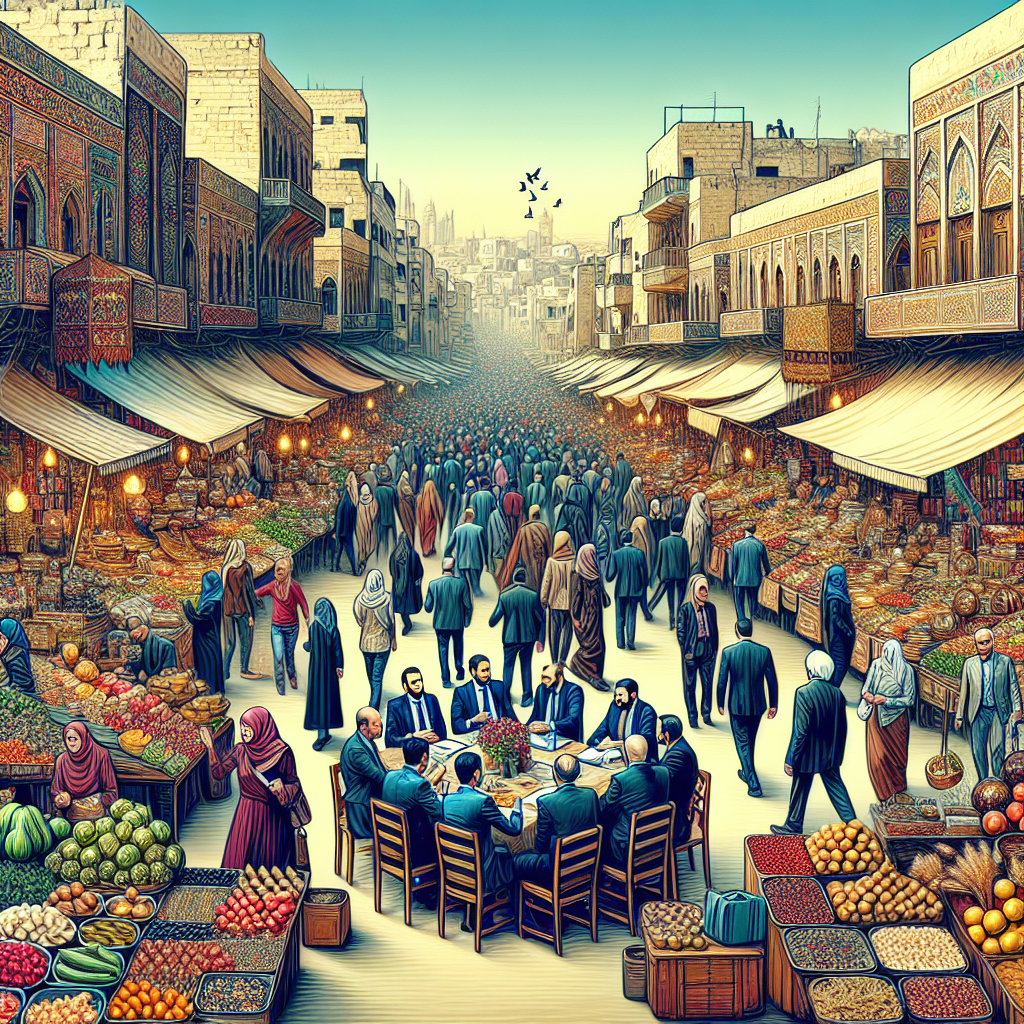Title: New Directions in Syria’s Economy: A Shift Towards Free Markets Amidst Devastation
Syria is at a crossroads. As the country emerges from years of conflict and devastation, leaders are pivoting towards a free-market economic model, promoting hope for revitalization and sustainability. Addressing the pressing issues that have crippled the economy, one prominent business leader recently expressed optimism about a shift that could foster growth and stability in the war-torn nation.
According to the latest reports, discussions surrounding economic reforms have gained traction as the government seeks to attract investment and stimulate entrepreneurship. This change aligns with a broader acknowledgment that rebuilding Syria requires a dynamic economic framework. Analysts believe that establishing a competitive market could lead to increased job creation and improved living standards.
But what does this mean for the average Syrian? The transition to a free-market economy may initially present challenges, particularly for those whose livelihoods have already been severely impacted by the ongoing crises. The stark reality of rising inflation and a declining currency continues to weigh heavily on families across the region. Reports indicate that as the value of the Syrian pound sinks, daily necessities grow increasingly out of reach.
Amid this backdrop, talks of reconstruction costs are becoming clearer. Estimates suggest that rebuilding efforts will require significant financial resources, potentially reaching hundreds of billions. The international community is being called upon to play a role in mobilizing support, but skepticism remains regarding when and how aid would be given.
While the shift toward market liberalization is a positive step, it raises questions about governance and the equitable distribution of wealth. Biblical principles offer a reflective perspective on these matters. In Matthew 25:14-30, Jesus tells the Parable of the Talents, emphasizing the importance of stewardship and responsible investment. This story suggests that while resources may be limited, wise management and collaboration can yield fruitful results.
As Syria embarks on this critical journey, the emphasis on community engagement and ethical practices becomes paramount. Encouraging local enterprise and nurturing talent aligns with the biblical call to “love your neighbor as yourself” (Mark 12:31), serving as a reminder that collective progress hinges on the well-being of all citizens.
In facing these tumultuous times, Syrians are invited to embrace resilience and hope. Just as the disciples were called to be builders of the Kingdom, so too are the citizens of Syria invited to become involved in constructive change. This period of potential transformation carries an encouraging message: every rebuilding effort, whether in the economy or society, is an opportunity for renewal.
As we reflect on Syria’s future, may we be inspired by the principles of stewardship, community, and hope. The road ahead may be challenging, but with dedication and unity, light can pierce through the darkness, leading to a flourishing society.
Explore and dig up answers yourself with our BGodInspired Bible Tools! Be careful – each interaction is like a new treasure hunt… you can get lost for hours 🙂


